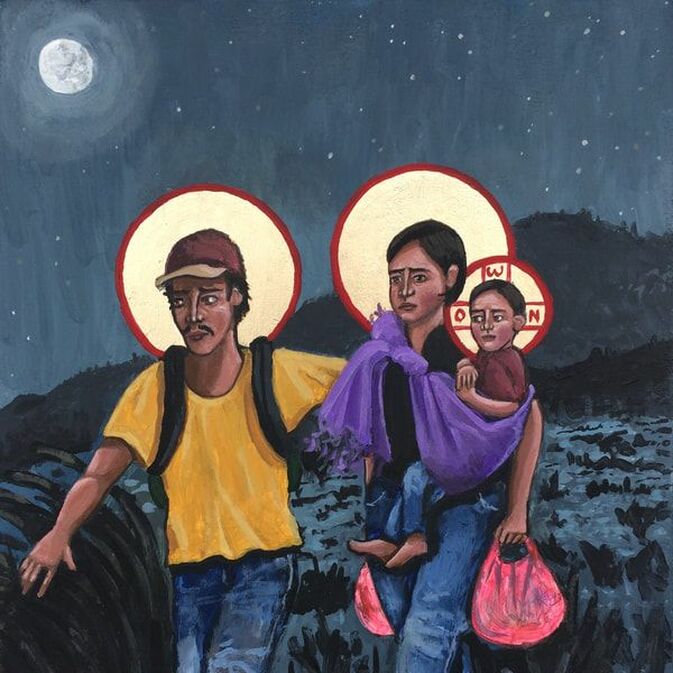|
Isaiah 58:9b-14 (NRSVCE) If you remove the yoke from among you, the pointing of the finger, the speaking of evil, if you offer your food to the hungry and satisfy the needs of the afflicted, then your light shall rise in the darkness and your gloom be like the noonday. The Lord will guide you continually, and satisfy your needs in parched places, and make your bones strong; and you shall be like a watered garden, like a spring of water, whose waters never fail. Your ancient ruins shall be rebuilt; you shall raise up the foundations of many generations; you shall be called the repairer of the breach, the restorer of streets to live in. If you refrain from trampling the sabbath, from pursuing your own interests on my holy day; if you call the sabbath a delight and the holy day of the Lord honorable; if you honor it, not going your own ways, serving your own interests, or pursuing your own affairs; then you shall take delight in the Lord, and I will make you ride upon the heights of the earth; I will feed you with the heritage of your ancestor Jacob, for the mouth of the Lord has spoken. Everything in Isaiah 58 hits on things that are familiar to us. Clothe the naked, feed the hungry, free the oppressed. Stop pointing your finger and speaking evil of others, and you will be blessed. You will be “like a watered garden,” not only filled with God’s blessings but also overflowing so that others will see you as a spring. This is how the faithful ought to behave. We ought to be the vessels of God’s blessing, pouring forth to those in need.
But this isn’t what we see in our society. Instead, we see vilification, demonization, and apathy (even rank hostility) toward things like social justice. We see children being forcibly removed from their parents and incarcerated. We see attempts from our leaders to curtail access to basic necessities and assistance, such as healthcare or food stamps, as well as the branding of those who would seek such assistance as undeserving and undesirable (“They’re just lazy”). We drop bombs on families and write it off as collateral damage. Instead of repairing the breach, we make it larger and reinforce it. Instead of being a light in the darkness, we shield our light, lest it be enjoyed by those we deem unworthy. In this way, we trample the sabbath. We profane it. The sabbath is not merely a day of worship, but it is a day of respite—particularly for the lower classes (Deuteronomy 5:12-15). If we think we can worship God while not only ignoring the needy but even actively taking steps to worsen their situation, then we are hypocrites. We spend our days not doing the works of God, but instead desperately looking for someone, anyone, that we can point a finger at to justify our oppression. It’s a heartbreaking thing to think about, to realize that we are the very thing the Bible warns us about. And even more so to realize that this infection runs so deeply within us, and within the society we have built for ourselves, that even after you see it you are nearly helpless to do anything about it. What can one person do in the face of such evil? The simple answer is to change your own life, and be that light to the people immediately around you. Feed the hungry in your community, clothe the naked in your neighborhood, actively question your own motivations and biases, and support leaders who can impact more widespread change. If you can, become one of those leaders yourself. We’re talking about evil at such a scale that it will never change overnight, and certainly not by one person. But we can make a difference at home, and with enough flickering candles in the darkness, eventually we may finally be that shining beacon we are called to be. |
ArchivesCategories
All
|

 RSS Feed
RSS Feed